Cargando...
Recursos educativos
-
Nivel educativo
-
Competencias
-
Tipología
-
Idioma
-
Tipo de medio
-
Tipo de actividad
-
Destinatarios
-
Tipo de audiencia
-
Creador
-
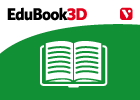
Before you start - The 20th century and the world today
EduBook Organización
- 1901 visitas
Didactic objectives Understand the context of the two world wars and recognise their differences. Develop an awareness of current conflicts around the world. Understand the history of the United Nations…
-
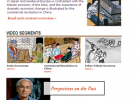
Early economies
Tiching explorer Organización
- 1 lo usan
- 2152 visitas
From a historical perspective, we discover how societies assign value to land, labor, and material goods. This unit establishes parallellisms among different cultures from different periods (manorial…
-
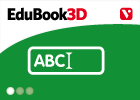
Complete. The new architecture
EduBook Organización
- 1819 visitas
Complete the sentences with the missing words or dates: appeared in the years before the Second World War and focused on the of buildings rather than their beauty. The created new forms that evoked a…
-
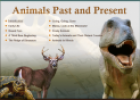
Website: Animals Past and Present
Tiching explorer Organización
- 2135 visitas
In this website we can learn about what types of animals were present during different time periods. It also explains how such things as plate tectonics, climate, and other factors affected these…
-
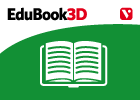
Post modern trends and digital art
EduBook Organización
- 1675 visitas
In the 1970s, artistic trends moved away from experimentation and innovation, and returned to techniques and models from previous periods. This was known as postmodernity. 5.1. Neo-expressionism,…
-
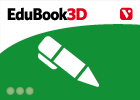
Observe. The 20th century and the world today
EduBook Organización
- 1653 visitas
Look at the timeline: When were the two world wars? What do we call the period between the two wars? Which event signalled the end of the Second World War? What type of war started after 1945? What were…
-
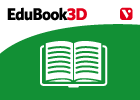
Before you start - The Roman Empire
EduBook Organización
- 1 lo usan
- 3226 visitas
Didactic objectives Find the different periods of Roman history on a timeline. Understand the social and economic organisation of Rome from the monarchy to the fall of the Empire. Identify the causes…
-
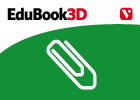
El Cid Campeador
EduBook Organización
- 3099 visitas
Rodrigo Díaz de Vivar was a Castilian vassal of Alfonso VI of Leon and Castile. He had a complicated relationship with the king and Rodrigo experienced periods of exile from the kingdom. When he was…
-
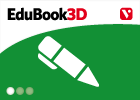
Check. Sculpture, pottery and painting in Greece
EduBook Organización
- 3018 visitas
Review what you have studied and do the activities: What were Greek artists looking to achieve in their sculptures? What periods of sculpture are related to inscrutable facial expressions, agility and…
-
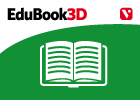
Rome's conquest of the Mediterranean
EduBook Organización
- 2571 visitas
2.1. The expansion of Rome Rome conquered many territories using its wealth and large, efficient army. The Roman conquests can be divided into three periods: Between 500 and 250 BC, Rome conquered the…
Te estamos redirigiendo a la ficha del libro...



